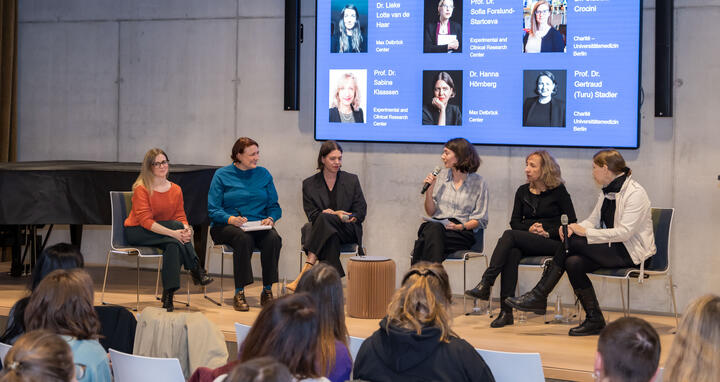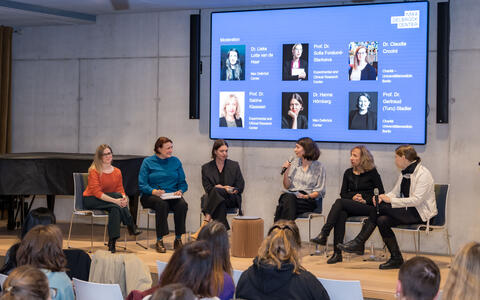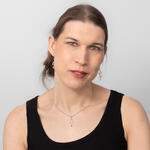No precision medicine without diversity
The conference room of the Berlin Institute for Medical Systems Biology of the Max Delbrück Center (MDC-BIMSB) is well attended, many young women and a few men look expectantly at the podium. This evening, seven female researchers will take the stage. They are discussing "Sex and gender disparities in medical research and practice" on the occasion of the Berlin Science Week.

Biomedical research is usually geared towards white men. But what is true for men can be wrong for women, very old people, or other ethnicities. Professor Maike Sander, Scientific Director of the Max Delbrück Center, explains that whoever wants to shape the precision medicine of tomorrow, will have to take different dimensions of diversity into account. An example from her own area of expertise, diabetes research: Inuit people suffer from type II diabetes particularly often because their bodies are adapted to a fat- and protein-rich diet without carbohydrates. Existing medication also does not help them as well. “This also illustrates that we need more diversity in our work force and study subjects. Those two are actually linked, because when people do not have a seat at the table, we will likely also not consider their needs in our research,” she says.
"Of course it's worth it"
Professor Sofia Forslund-Startceva opens the series of short talks and emphasizes: "Biological sex is a complicated matter". Hormones control a lot of biological processes in women, for example, but not all. Dr. Claudia Crocini explains why diversity is important in basic research: heart cells and even individual molecules differ in their composition between men and women. "If we consider diversity more strongly, research becomes more reproducible and effective, more can be discovered and, ultimately, more people benefit," says the researcher.
On stage: The researchers Claudia Crocini, Gertraud (Turu) Stadler, Hanna Hörnberg, Lieke Lotte van de Haar, Sabine Klaassen and Sofia Forslund-Startceva during the panel discussion.
And in practice? "If we want to make research more diverse, it takes more time, so it becomes much more expensive. But of course it's worth it," Dr. Hanna Hörnberg clarifies in the concluding discussion. We should follow the example of countries like Canada and change the framework conditions for research, demands Professor Gertraud Stadler. Categories such as ethnicity or gender would then have to be taken into account in studies - and these categories should also be given more weight in peer review processes, as Sofia Forslund-Startceva adds. Research does not have to immediately include all conceivable aspects of diversity: "Although inclusion of all conceivable aspects of diversity is necessary for personalized medicine, not all research projects have to benefit everyone: I think it is fine if some research only benefits women, it is fine to do research that only benefits one smaller group. After all, women is not even a small group," says Hanna Hörnberg. The audience agrees with her.
Text: Wiebke Peters
Further information









